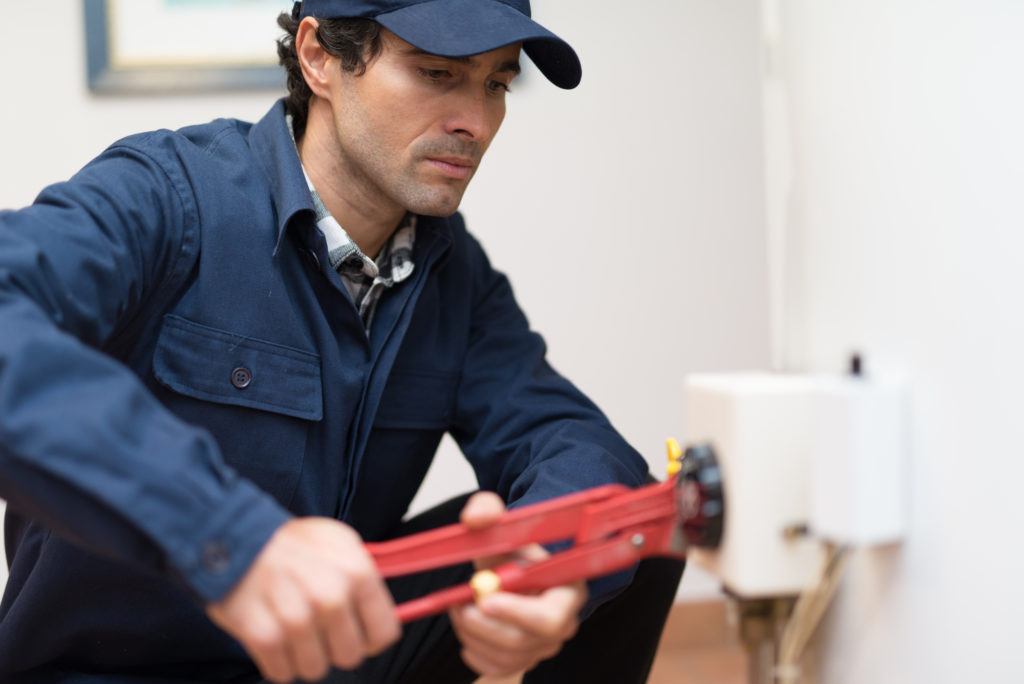An Introduction To Fixing Everyday Heater Problems
An Introduction To Fixing Everyday Heater Problems
Blog Article
Just about every person maintains their own unique assumption involving Common Problems with Tank Water Heaters.

Think of beginning your day without your routine warm shower. That currently sets a bad tone for the rest of your day.
Every residence needs a dependable water heater, yet only a few recognize just how to handle one. One very easy means to maintain your water heater in leading shape is to check for faults frequently and also fix them as quickly as they show up.
Keep in mind to turn off your water heater prior to sniffing around for mistakes. These are the hot water heater faults you are most likely to run into.
Water also warm or also cold
Every hot water heater has a thermostat that determines just how hot the water gets. If the water entering into your house is too warm in spite of establishing a practical optimum temperature level, your thermostat might be faulty.
On the other hand, too cold water might be due to a fallen short thermostat, a busted circuit, or inappropriate gas circulation. For example, if you make use of a gas hot water heater with a damaged pilot light, you would get cold water, even if the thermostat is in excellent problem. For electrical heating systems, a blown fuse might be the perpetrator.
Inadequate hot water
Water heaters can be found in lots of sizes, depending upon your warm water needs. If you lack warm water before every person has had a bath, your water heater is too tiny for your family size. You must consider mounting a bigger hot water heater tank or going with a tankless water heater, which occupies less room and is extra resilient.
Weird noises
There are at the very least 5 sort of sounds you can learn through a water heater, but the most typical analysis is that it's time for the hot water heater to retire.
First of all, you should be familiar with the typical sounds a hot water heater makes. An electrical heating system might appear various from a gas-powered one.
Popping or banging noises typically imply there is a slab of debris in your storage tanks, and it's time to clean it out. On the other hand, whistling or hissing sounds may just be your valves allowing some stress off.
Water leaks
Leakages can come from pipes, water connections, valves, or in the worst-case scenario, the storage tank itself. With time, water will certainly wear away the container, and find its way out. If this takes place, you require to change your hot water heater asap.
Nonetheless, before your change your entire container, be sure that all pipelines are in place and that each shutoff functions flawlessly. If you still require aid recognizing a leakage, call your plumber.
Rust-colored water
Rust-colored water implies among your hot water heater elements is corroded. Maybe the anode rod, or the container itself. Your plumber will have the ability to determine which it is.
Lukewarm water
Despite exactly how high you established the thermostat, you will not obtain any warm water out of a heating system well past its prime. A water heater's performance may decrease with time.
You will certainly additionally obtain lukewarm water if your pipes have a cross link. This suggests that when you turn on a tap, hot water from the heating unit streams in along with regular, cold water. A cross connection is easy to spot. If your hot water taps still follow shutting the water heater shutoffs, you have a cross link.
Discoloured Water
Corrosion is a significant reason for filthy or discoloured water. Rust within the water tank or a stopping working anode rod can trigger this discolouration. The anode pole safeguards the container from rusting on the inside and also ought to be checked yearly. Without a pole or a correctly functioning anode rod, the hot water swiftly corrodes inside the container. Contact an expert water heater technician to identify if replacing the anode rod will take care of the trouble; if not, replace your water heater.
Verdict
Ideally, your hot water heater can last one decade prior to you need a change. However, after the 10-year mark, you might experience any of these faults extra on a regular basis. At this point, you should add a new water heater to your budget.
How To Troubleshoot 3 Common Water Heater Problems in Twin Cities
The Water Heater Is Leaking
A leaky cold water inlet valve A loose pipe fitting A leaky temperature and pressure relief valve A corroded anode rod A cracked tank Turn Off Your Water Heater:
Shut off your gas water heater by turning the gas valve on the unit to the “OFF” position. Shut off your electric water by switching its power off at your electrical panel. Look for a two-pole breaker labeled “water heater” and turn it to the “OFF” position. Move the ball valve connected to the water heater to be perpendicular to the piping at a 90° angle. Look for the Leak:
Depending on whether the water is coming from the tank's top or bottom, you’ll want to look for the leak in different locations.
If the leak comes from the top of the tank, carefully look for water escaping from the cold water inlet valve or loose pipe fittings. Rusted hot and cold water valves can have loose connections with the tank, with water leaking out of them.
https://mspplumbingheatingair.com/blog/how-to-troubleshoot-3-common-water-heater-problems
Hopefully you enjoyed our excerpt on Water Heater Repair and Troubleshooting. Thank you so much for spending some time to browse our article post. Those who liked our post if you please make sure you remember to pass it around. We appreciate reading our article about Common Problems with Your Home Water Heater.
Contact for quality! Report this page